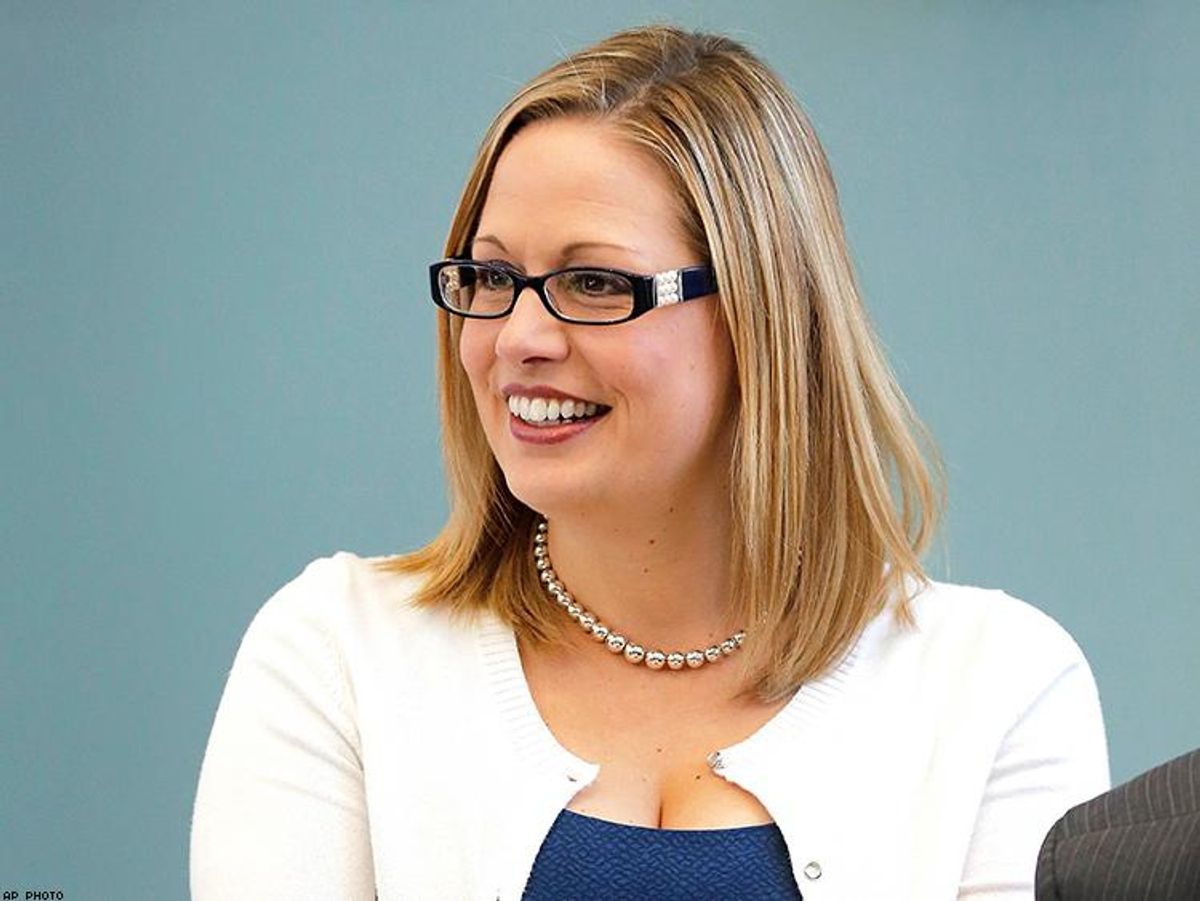Although many were touched by Republican Senator Jeff Flake's passionate announcement that he will not seek re-election because of frustration over President Trump, the Democratic candidate for his seat, Kyrsten Sinema, may be moved the most. Sinema, who made headlines when she became the nation's first openly bisexual congresswoman in 2012, is that much closer to breaking the glass sexuality ceiling in the Senate.
Sinema has a good shot at winning the Senate seat now that she no longer has to face an incumbent. It's not clear who Sinema will face in the November 2018 election, though conservative Kelli Ward is hoping to be the state's Republican nominee for the seat. A recent poll showed Sinema as much more popular than Ward; Sinema easily won reelection in 2014 and 2016.
Sinema is known for being a deft fundraiser with moderate politics that play well in the purple state of Arizona. Many have been moved by Sinema's compelling childhood -- she spent three years living in an abandoned gas station while her family struggled with poverty. However, she is no by-the-book Democrat; she didn't vote for Nancy Pelosi as House leader and was a shaky supporter of Hillary Clinton. Sinema also known for leaning across the aisle, voting for Republican-led legislation about half the time.
Sinema, 41, is a supporter of women's rights though, listing equal pay, parental leave, child care, and women's health as priorities. Jobs, education, national security, and supporting veterans are other issues Sinema says she's passionate about.
Although the state hasn't elected a Democratic senator since 1988, the state voted for Trump by a slim margin and he remains unpopular there.
Sinema first publically announced she was a member of the LGBT community in 2005 after a Republican congressman insulted sexual minorities in a speech. "We're simply people like everyone else who want and deserve respect," she told reporters. When further pressed about her own sexuality, she replied, "Duh, I'm bisexual."
Should Sinema be elected next year, she would become the second out LGBT person elected to the Senate, following Wisconsin's Tammy Baldwin.


















































































Viral post saying Republicans 'have two daddies now' has MAGA hot and bothered